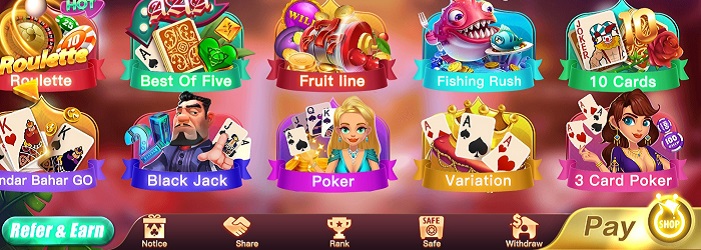Rummy Nabob: Why this Game Is So Pupular In India?

If you’ve come across the term “rummy nabob,” you might find it both amusing and intriguing. What does it mean? Where did it come from? And why is it worth talking about today? As someone fascinated by unique phrases, I’ve explored its origins, cultural significance, and modern applications to give you a well-rounded understanding of this quirky term.
What Does “Rummy Nabob” Mean?
The phrase “rummy nabob” is a combination of two distinct words:
- Rummy: While “rummy” is widely known as the name of a popular card game, the word historically means peculiar, odd, or curious. It’s often used to describe something out of the ordinary.
- Nabob: Borrowed from the Persian word nawab, it originally referred to a powerful ruler or governor in South Asia during the Mughal Empire. The British adopted the term during the colonial era to describe wealthy individuals with influence or opulence.
When combined, “rummy nabob” can describe someone who is eccentric yet distinguished—a wealthy or influential person with unusual traits or behavior.
The Origins and Historical Context of “Rummy Nabob”
To fully understand this term, it’s helpful to look at its components separately:
- The History of “Rummy”
The word “rummy” entered English slang in the late 18th to early 19th century. It was used to describe something strange or remarkable. The card game Rummy, which gained global popularity in the 20th century, borrowed its name from this older meaning because of the game’s unpredictable and exciting nature. - The Rise of “Nabob”
The term “nabob” became popular in English during the British colonial period in India. It referred to British officials or merchants who amassed great wealth while living in India and returned home displaying their newfound riches and influence. Over time, it came to signify anyone who was extravagantly wealthy and ostentatious.
When the two words are combined, “rummy nabob” reflects a playful description of a peculiar yet affluent individual—a phrase with an old-world charm that still resonates today.
Modern Interpretations and Uses of “Rummy Nabob”
Although “rummy nabob” is not a commonly used phrase today, it has modern relevance in several contexts:
1. Eccentric Billionaires and Influencers
Think of real-life personalities like Elon Musk or Richard Branson—wealthy individuals known for their unconventional behavior and innovative ideas. These modern-day “rummy nabobs” often dominate headlines for their bold ventures and quirky personas.
2. Fictional Characters
Many iconic characters in movies and books fit the description of a “rummy nabob.” For example, Willy Wonka from Charlie and the Chocolate Factory is both peculiar and fabulously wealthy.
3. Card Game Enthusiasts
Fans of the card game Rummy could adopt the term as a playful nickname for highly skilled players with unique strategies. It adds a layer of charm to the competitive spirit of the game.
Why Is This Term Culturally Significant?
“Rummy nabob” represents a delightful blend of history, humor, and eccentricity. Here’s why it’s still relevant:
- Cultural Preservation: Quirky terms like this keep old-fashioned phrases alive in modern conversations.
- Storytelling Appeal: It adds color and intrigue to stories or descriptions, making them more memorable.
- Modern Connections: The phrase aligns well with contemporary discussions about wealth, personality, and influence.
How to Use “Rummy Nabob” in Everyday Language
If you’re inspired to incorporate “rummy nabob” into your vocabulary, here are some ideas:
- In Casual Conversations: “My neighbor’s a total rummy nabob—he owns 10 cats and drives a Rolls-Royce!”
- In Social Media Posts: “Feeling like a rummy nabob today—eccentric and fabulous!”
In Creative Writing: Use the term to describe a quirky, affluent character in your story or screenplay.
Fun Facts About “Rummy Nabob”
- The card game Rummy got its name from the older slang term, not the other way around.
- The word “nabob” was famously used in American politics during the 20th century, particularly in the phrase “nattering nabobs of negativism.”
- “Rummy nabob” could easily become a trendy term for describing influencers or social media personalities with an eccentric streak.
Final Thoughts
“Rummy nabob” is more than just a quirky phrase—it’s a fascinating glimpse into the evolution of language and culture. From its historical roots in colonial India to its potential modern applications, this term bridges the gap between old-world charm and contemporary relevance.
FAQs About “Rummy Nabob”
1. What does “rummy nabob” mean?
“Rummy nabob” refers to someone who is both eccentric and wealthy. The term combines “rummy,” meaning peculiar or odd, and “nabob,” a historical term for a wealthy or influential person.
2. Is “rummy nabob” related to the card game Rummy?
Not directly. While “rummy” is a popular card game, the term here reflects an older English usage, meaning odd or intriguing. However, the phrase could be humorously applied to skilled or eccentric Rummy players.
3. Where did the term “nabob” originate?
“Nabob” comes from the Persian word nawab, historically used to describe governors or rulers in South Asia. The British adopted it during the colonial era to refer to wealthy individuals, particularly those who gained wealth in India and returned home.
4. Can I use “rummy nabob” in everyday language?
Yes! It’s a playful term that can be used to describe someone who is both affluent and quirky. For example:
- “My boss is such a rummy nabob—he has a private jet and a collection of vintage typewriters!”
5. Is “rummy nabob” a compliment?
It can be a compliment or a lighthearted observation. It highlights someone’s unique personality while acknowledging their wealth or influence.
6. How can “rummy nabob” be used in writing or storytelling?
The term is great for describing eccentric characters, especially those with wealth or power. It adds a whimsical touch to your descriptions. For example, “The mansion belonged to a rummy nabob who collected antique circus memorabilia.”
7. Is “rummy nabob” still relevant today?
While not commonly used, the phrase is a charming way to describe modern-day influencers, eccentric billionaires, or anyone with a unique combination of wealth and personality.




